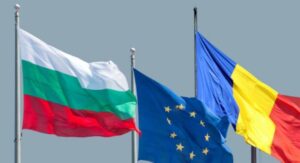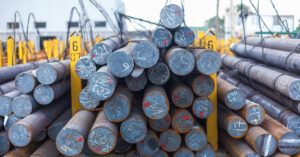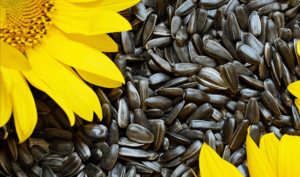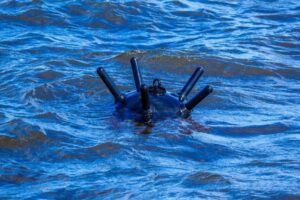
Turkey, Romania, and Bulgaria on Monday launched a joint mine-sweeping operation in the Black Sea to improve shipping safety, especially during the export of Ukrainian grain, Bloomberg reports.
The publication noted that the Istanbul-led initiative is the first major joint action by the Black Sea countries since Russia’s invasion of Ukraine in February 2022 and focuses on clearing mines drifting in certain areas of the Black Sea as a result of the war.
“Russia and Ukraine are key grain producers, and the war has jeopardized the safe passage of goods. Kyiv launched its own Black Sea export route last year after the failure of a secure corridor agreement backed by Russia, Turkey and the United Nations. It has successfully boosted exports and helped the economy grow faster than forecast, but the route remains risky,” Bloomberg writes.
Among the major maritime losses, the publication named a Russian missile attack near the key Ukrainian port of Odesa on a merchant ship, killing the captain and other crew members, as well as a ship hired by Cargill Inc. that was damaged in November by an explosion while leaving a Ukrainian port in the Black Sea.
Ukraine said in March that exports from its Black Sea ports had almost returned to pre-war levels after repeated attacks and disruptions following Russia’s full-scale invasion. However, ports around Odesa frequently face strikes from Russia that continue to interrupt operations, Bloomberg recalled.

Starting March 31, Bulgaria and Romania will become members of the Schengen area: Schengen rules will be applied in both member states, including the issuance of Schengen visas, and control at internal air and sea borders will be abolished.
This was reported by the press service of the European Commission on Saturday.
“The Commission strongly welcomes this achievement, which follows the historic Council decision of December 2023. The accession of these two Member States to the Schengen area will make the common area more attractive by significantly expanding the world’s largest common area without internal border controls,” the press release says.
Commenting on the event, President of the European Commission Ursula von der Leyen said: “Tomorrow marks an important day: Bulgaria and Romania join the Schengen family. I welcome the abolition of internal air and sea border checks. This is a great success for both countries. And a historic moment for the Schengen area – the largest free movement area in the world. Together we are building a stronger and more united Europe for all our citizens.”

In January-February this year, Ukraine increased exports of carbon steel semi-finished products in physical terms by 3.38 times compared to the same period last year, to 364.162 thousand tons.
According to statistics released by the State Customs Service on Wednesday, exports of carbon steel semi-finished products increased 3.1 times in monetary terms to $175.088 million.
The main exports were to Bulgaria (33.46% of supplies in monetary terms), Poland (17.70%) and the Dominican Republic (8.21%).
As reported, in 2023, Ukraine decreased exports of carbon steel semi-finished products in physical terms by 36.7% compared to 2022, to 1 million 203.454 thousand tons, while exports in monetary terms decreased by 48.9% to $608.516 million. The main exports were made to Bulgaria (36.66% of supplies in monetary terms), Poland (23.01%), and Italy (9.60%).
In 2022, Ukraine decreased exports of carbon steel semi-finished products by 72% year-on-year to 1 million 899.729 thousand tons in physical terms and by 70.9% to $1 billion 191.279 million in monetary terms. The main exports were to Bulgaria (26.55% of supplies in monetary terms), Poland (13.97%) and Italy (12.13%).

The Cabinet of Ministers has simplified the conditions for exporting sunflower seeds to Bulgaria and established an automatic licensing regime instead of a non-automatic one.
According to the official website of the government, the decision was made at the meeting of the Cabinet of Ministers on Friday.
“Recently, the Republic of Bulgaria has agreed to liberalize the export licensing regime for one of these agricultural commodities, namely sunflower seeds. From now on, obtaining licenses to export sunflower seeds to Bulgaria will not require the approval of the Ministry of Agrarian Policy and, accordingly, separate consultations with this country,” the press service of the Cabinet of Ministers quoted Taras Kachka, Deputy Minister of Economy of Ukraine – Trade Representative, as saying.
According to him, this should simplify the export of relevant Ukrainian products.
Earlier, in order to unblock Ukrainian exports of agricultural products through neighboring EU countries, the government introduced verification and approval (licensing – IF-U) of wheat, corn, rapeseed and sunflower exports to Bulgaria, Romania, Slovakia, Hungary and Poland.

Turkey, Romania, and Bulgaria will sign a joint agreement in January 2024 to counter the mine threat in the Black Sea, Turkish National Defense Minister Yashar Güler said, TRTHaber reported on Saturday, December 16.
“Within the framework of the Trilateral Initiative, launched under the leadership of our country against the mine threat in the Black Sea, on November 22-23, we held the third round of the meeting of the Task Force on Mine Action in the Black Sea, hosted by our ministry. We are also planning to hold a signing ceremony in Istanbul on January 11, 2024, with the participation of the defense ministers of the three countries,” said Yasar Güler.
The minister emphasized that Turkey responsibly and impartially implements the Montreux Straits Convention, which ensures balance in the Black Sea, and is determined to continue to do so.

Bulgaria’s parliament has overridden the presidential veto on an agreement to supply Ukraine with used armored personnel carriers (APCs), ratified earlier by parliament, The Sofia Globe reports.
“The Bulgarian National Assembly voted on December 8 to override President Rumen Radev’s veto of the agreement between the Bulgarian Ministry of Interior and the Ukrainian Ministry of Defense on Bulgaria’s supply of used APCs to Ukraine, ratified by parliament last month,” the newspaper said.
The motion to override the veto was passed with 161 votes in favor and 55 against.
The agreement stipulates that Bulgaria will supply APCs and existing weapons, as well as spare parts. The vehicles were purchased in the 1980s and have been mothballed for several decades.
In addition, on December 8, the Bulgarian National Assembly voted overwhelmingly (145 in favor, 55 against) to provide additional military assistance to Ukraine, to allow the use of Bulgarian airspace for training Ukrainian F-16 pilots, and to allow a limited number of Ukrainian military personnel to transit or stay in Bulgaria for training.
Additional military assistance would include Bulgaria providing Ukraine with malfunctioning, obsolete, and surplus air defense missiles. The military assistance also includes allowing Ukrainian infantry or mechanized companies of up to 160 personnel per year to transit or stay in Bulgaria for training.